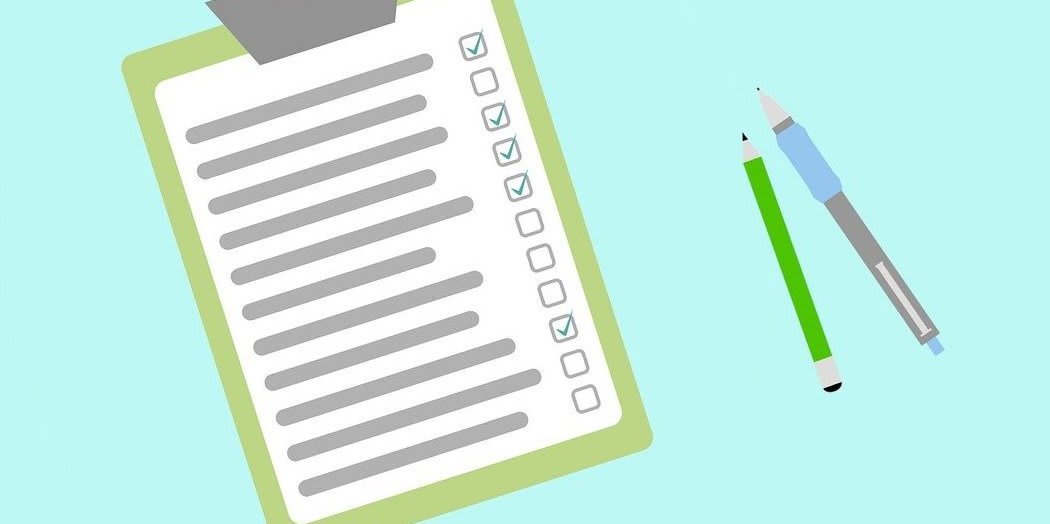Time management skills were always important in the workplace. But they are especially valuable now that working from home has become so widespread. Luckily, as is the case with any skill, they can be improved through training. However, first, you need to establish a baseline – that’s where the time management questionnaire comes in.
Our customizable time management questionnaire template will provide you with the means to start improving your workers’ efficiency. You can use it just as it is, customize it to suit your needs, or make your own with our survey maker. Also, you may want to check out our remote working templates for more quizzes and surveys that could benefit your team.
A Few Words About The Grading Scale
First off, your time management questionnaire should include a grading scale. A descriptive scale with 5 grades is the standard.
For example:
-
1 - never
-
2 - rarely
-
3 - sometimes
-
4 - often
-
5 - very often.
However, if you need more specific info, feel free to include more than five grades. We would only suggest not going below five. Providing four or fewer options won’t give you accurate data, which will in turn make focusing on improvements harder. Now, let’s get to the body of the questionnaire.
Which Questions to Include in Your Time Management Questionnaire?
The questions you include in your questionnaire should fall under one of three categories.
-
Setting goals
-
Prioritizing
-
Managing interruptions
Identifying the particular areas in which a person is lacking is the first step toward providing individualized training or counseling. The categories are important for you to identify what needs improvement, not for the person answering the questions. So, don’t name the categories in your questionnaire, rather spread the questions around.

Setting Goals
Knowing how to set achievable goals is the first step toward efficiency. Actually realizing these goals comes later. First, a framework, which includes scheduling, needs to be put in place.
There are various questions you can ask to find out about your respondents’ goal-setting skills. How you phrase each question is up to you, but you should include statements that cover the following areas:
-
Goal setting: I set weekly/monthly/quarterly goals.
-
Planning: I plan my schedule before I start working.
-
Deadlines: Deadlines stress me out.
These questions/statements demonstrate the responder’s basic time management skills. After all, if you don’t set short and long-term goals, it’s hard to know what you need to do and when to do it. And if deadlines stress you out, it’s worth looking into why that is.
Prioritizing
Next, we get actually realizing the goals set. Clear and logical prioritization makes achieving one’s goals possible. It has nothing to do with commitment, a hard-working person may still have a tough time getting the job done if they spend most of their time focusing on less important tasks.
Here are some sample questions you can use in your time management questionnaire:
-
I know how much time and effort I will need to invest in each task to complete it.
-
Setting priorities is something I do regularly.
-
I finish the most important/difficult tasks first.
Managing Interruption
Finally, we get to how good a worker is at managing interruptions. Even if a person is good at setting overall goals and prioritizing, they may be unable to get the job done if they find it hard to focus. In this case, it probably comes down to their inability to manage interruptions. And interruptions can’t be avoided in life.
Assess their skill by covering the following areas in your questions:
-
Distractions: I get easily distracted.
-
Refocusing: It is hard for me to continue working after something interrupts me.
-
Procrastination: I complete tasks at the last minute or finish them late.

Analyzing the Results of Your Time Management Questionnaire
Once your employees have filled out the time management questionnaire, the final step is to understand the data you gathered. Since you’ve broken down the questions into a couple of categories, you should have an easy time assessing each employee’s skills.
The results will help you understand how well they do in different aspects of time management and make pinpointing areas that need improvement simple.
With a time management questionnaire, you can easily identify your employees’ strengths and weaknesses. Then, it’s much simpler to provide appropriate training. In essence, it’s about working smarter, not harder. And this is the first step.
Check out our template library for more useful human resources templates and examples to work with.












 Preview
Preview 






